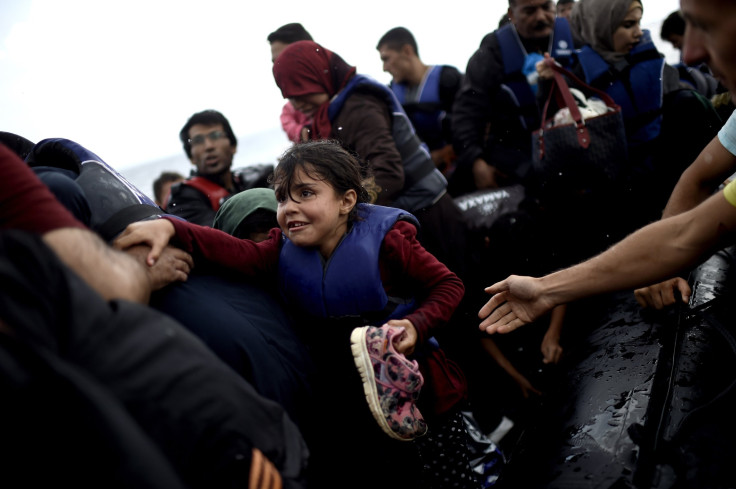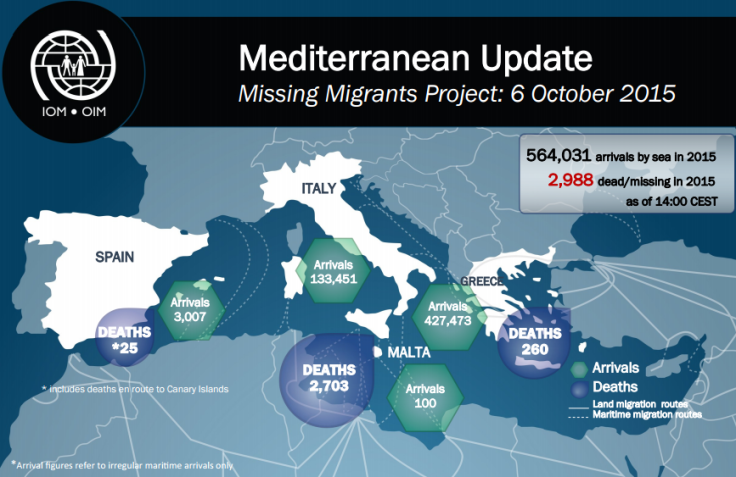Mediterranean Refugee Crisis: EU Launches 'Operation Sophia' To Intercept, Seize Traffickers' Boats

So far this year, over half a million migrants and refugees have crossed the Mediterranean Sea to enter Europe, triggering the region’s biggest refugee crisis since World War II. The crisis has also provided opportunities to human traffickers and smugglers, who have exploited the situation to their benefit by cramming refugees in overcrowded boats bound for Europe that have, in many cases, capsized and killed thousands of people.
Starting Wednesday, the European Union (EU), which has so far focused on surveillance and rescue operations in the region, will begin a new operation -- termed Operation Sophia -- to actively intercept boats smuggling refugees. The operation, which focuses on an area of the Mediterranean Sea north of Libya, currently includes an Italian aircraft carrier, a French frigate, two German ships, and one British and Spanish ship, Al Jazeera reported.
“The EU naval operation against human smugglers in the Mediterranean will be able to board, search, seize and divert vessels suspected of being used for human smuggling or trafficking on the high seas, in line with international law,” the EU member states said, in a statement released last week.

Over the past year, the number of people willing to risk the perilous journey across the Mediterranean has spiked, as conflict, war and poverty in the Middle East and Africa continue to take their toll. Nearly 3,000 people have drowned in the region so far, according to data compiled by the International Organization for Migration (IOM).
The IOM also found that of the roughly 560,000 refugees who have arrived on European shores this year, approximately 133,000 have landed in Italy, while over three times that number -- nearly 428,000 -- have landed in Greece, after undertaking a high-risk voyage in over-packed rubber dinghies that set sail from Turkey.

In June, the EU launched the first phase of the operation, called EUNavfor Med, which involves naval surveillance and monitoring trafficking patterns.
The second phase -- Operation Sophia -- named after a baby born on a German frigate to a rescued Somali woman in August -- aims “to prevent the further loss of life at sea,” the EU said, adding that its vessels will patrol over 10 areas off the Libyan coast -- four along the 12-nautical mile mark that separates international waters from Libyan waters, and others farther out to sea.
“It is part of a wider EU comprehensive approach to migration, tackling both the symptoms and root causes such as conflict, poverty, climate change and persecution,” the EU added, in the statement.
© Copyright IBTimes 2024. All rights reserved.






















